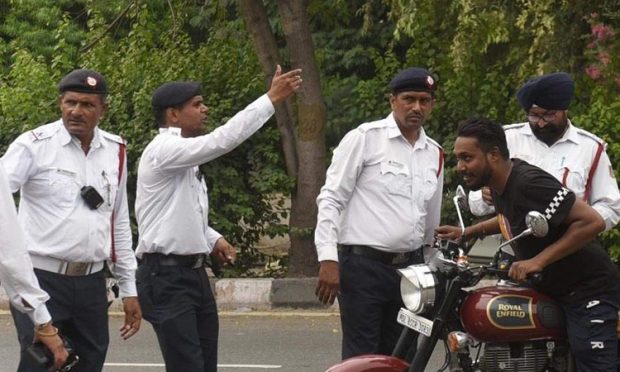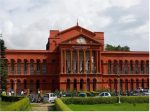
Person committing offence under MV Act can also be booked under IPC: SC
Team Udayavani, Oct 7, 2019, 5:59 PM IST

New Delhi: A person committing offences under the Motor Vehicles Act like overspeeding and rash driving can also be booked under the Indian Penal Code as both the statutes “operate with full vigour, in their own independent spheres”, the Supreme Court has said.
“With rapidly increasing motorisation, India is facing an increasing burden of road traffic injuries and fatalities”, it said.
A bench of Justices Indu Malhotra and Sanjiv Khanna set aside an order of the Gauhati High Court of December 22, 2008, which held that a person booked for over speeding, dangerous driving and other related offences under the MV Act cannot be prosecuted under the IPC.
“In our considered view the position of law is well-settled. This Court has consistently held that the MV Act,1988 is a complete code in itself in so far as motor vehicles are concerned,” the bench said in a recent judgement.
“However, there is no bar under the MV Act or otherwise, to try and prosecute offences under the IPC for an offence relating to motor vehicle accidents. On this ground as well, the impugned judgment is liable to be set aside,” it said.
The top court said the ingredients of offences under the both statutes are different and an offender can be tried and punished independently under both of them.
“The principle that the special law should prevail over the general law, has no application in cases of prosecution of offenders in road accidents under the IPC and MV Act,” it said.
Justice Malhotra, who penned the verdict for the bench, said, “In our view there is no conflict between the provisions of the IPC and the MV Act. Both the statutes operate in entirely different spheres. The offences provided under both the statutes are separate and distinct from each other. The penal consequences provided under both the statutes are also independent and distinct from each other”.
Dealing with the offences, the bench said there are no provisions under the MV Act which separately deal with offences causing death, or grievous hurt, or hurt by a motor vehicle in cases of motor vehicle accidents.
“Chapter XIII of the MV Act is silent about the act of rash and negligent driving resulting in death, or hurt, or grievous hurt, to persons nor does it prescribe any separate punishment for the same; whereas Sections 279, 304 Part II, 304A, 337 and 338 of the IPC have been specifically framed to deal with such offences,” it said.
Offences under Chapter XIII of the MV Act are compoundable in nature whereas offences under Section 279, 304 Part II and 304A IPC are not, it added.
“If the IPC gives way to the MV Act, and the provisions of CrPC succumb to the provisions of the MV Act as held by the High Court, then even cases of culpable homicide not amounting to murder, causing death, or grievous hurt, or simple hurt by rash and negligent driving, would become compoundable. Such an interpretation would have the consequence of letting an offender get away with a fine by pleading guilty, without having to face any prosecution for the offence committed,” the bench said.
The principle of proportionality between the crime and punishment has to be borne in mind and the principle of just punishment is the bedrock of sentencing in respect of a criminal offence, it said.
“This Court has time and again emphasised on the need to strictly punish offenders responsible for causing motor vehicle accidents. With rapidly increasing motorisation, India is facing an increasing burden of road traffic injuries and fatalities. The financial loss, emotional and social trauma caused to a family on losing a bread winner, or any other member of the family, or incapacitation of the victim cannot be quantified”, it said.
The bench said it is well settled that an act or an omission can constitute an offence under the IPC and at the same time, be an offence under any other law.
“The finding of the High Court that the prosecution of offenders under two statutes i.e. the MV Act and the IPC, is unsustainable and contrary to law, is therefore, set aside,” it said.
The top court said the maximum imprisonment for a first time offence under Chapter XIII of the MV Act, is up to only six months, whereas the maximum imprisonment for a first time offence under the IPC in relation to road traffic offences can go up to 10 years under Section 304 Part II of the IPC.
“The sentence imposed by courts should be commensurate with the seriousness of the offence, and should have a deterring effect on wrongdoers. The punishment of offenders of motor vehicle accidents under the IPC is stricter and proportionate to the offence committed, as compared with the MV Act,” it said, adding that even assuming that some of the provisions of the MV Act and IPC are overlapping, it cannot be said that the offences under both the statutes are incompatible.
The top court also set aside the direction of the Gauhati High Court, which has asked Assam, Nagaland, Meghalaya, Manipur, Tripura, Mizoram and Arunachal Pradesh to issue appropriate instructions to their subordinate officers to prosecute offenders in motor vehicle accidents only under the provisions of the MV Act, 1988 and not the IPC.
Udayavani is now on Telegram. Click here to join our channel and stay updated with the latest news.
Top News
Related Articles More

NIA arrests key accused in 2023 attack on Indian High Commission in London

Indian nationals aboard ‘MSC Aries’ in good health, return delayed due to technicalities: MEA

Husband has no control over wife’s ‘stridhan’: SC

Second phase of LS polls: Polling on Friday for 88 seats in 13 states

Ex-IAS Officer Anil Tuteja accused of masterminding Chhattisgarh liquor scam: ED
MUST WATCH
Latest Additions

NIA arrests key accused in 2023 attack on Indian High Commission in London

Three persons run over by train in Bengaluru

Indian nationals aboard ‘MSC Aries’ in good health, return delayed due to technicalities: MEA

Husband has no control over wife’s ‘stridhan’: SC

IT sleuths threatening raided leaders to claim money belongs to me, Cong: DK Shivakumar























